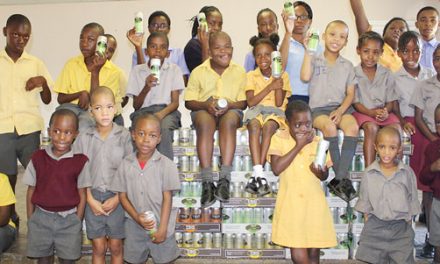
Namibia not “truly democratic”
Namibia is still far from being a true democratic state. According to the Democracy Index for Namibia 2012: ‘Unfinished Business, Democracy in Namibia’ although formal institutions, structures and procedures are in place, a democratic culture is not yet deeply entrenched 22 years after the country’s independence.
The index, which is an initiative of the Institute for Democracy in Africa (Idasa), recognises that the country has created the formal framework for a sustainable democracy which includes its rights-based constitution, multi-party democracy, human rights and equality. However, for democracy to be truly consolidated in Namibia, democracy must be complemented by sustainable development fuelled by significant economic growth and provided through the effective delivery of services by government, the authors of the index say.
The purpose of the index is to assess the state of Namibia’s democracy in terms of the constitutional framework that defined the country’s transition to democracy. The current state of democracy in Namibia was also assessed against a set of contextualised indicators to encourage debate around issues that emerge from this process.
William Lindeke, co-author of the index and lecturer at the University of Namibia, said that whatever Namibians do, should be in line with Vision 2030.
In the book, Lindeke examines both the manner and extent of participation in Namibia following 21 years of democracy.
He notes that Namibians are among the most satisfied populations in terms of the perceptions people hold about its democracy. He identifies a number of risks that if not addressed could significantly depreciate the state and quality of Namibian democracy. These risks include a decline in support for elections among Namibians and Namibians tend to delegate responsibility to their elected representatives and trust them to act in their best interests and do what is right for the nation, but the governing elites seem to be centered on the centralisation of power and control over government, Lindeke noted.
Another aspect that was looked at was the elections that took place in 2009. There were short comings in the operational procedures such as inaccurate voters’ rolls and outdated procedures were incorporated into electoral legislation which has contributed to a growing apathy towards public affairs particularly among younger Namibians.
Churches have been quiet and that has also contributed a growing lack of confidence in the electoral system amongst the population as a whole.
Human rights activist, Phil Ya Nangoloh, said that media freedom is not guaranteed despite Namibia having a vibrant media. He further went on to say that there is a lot of inequality in Namibia. “The constitution of Namibia is hardly respected, Namibia is the most unequal society in the world with a wealth distribution of 0.6 to 0.7% which is extreme, Namibia is a rich country with poor people,” he concluded.









































